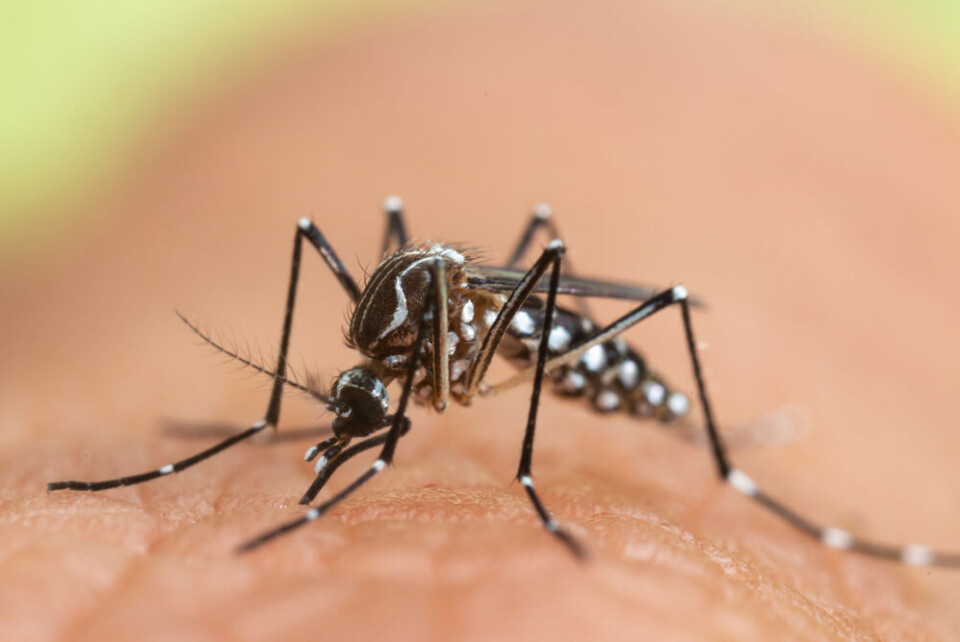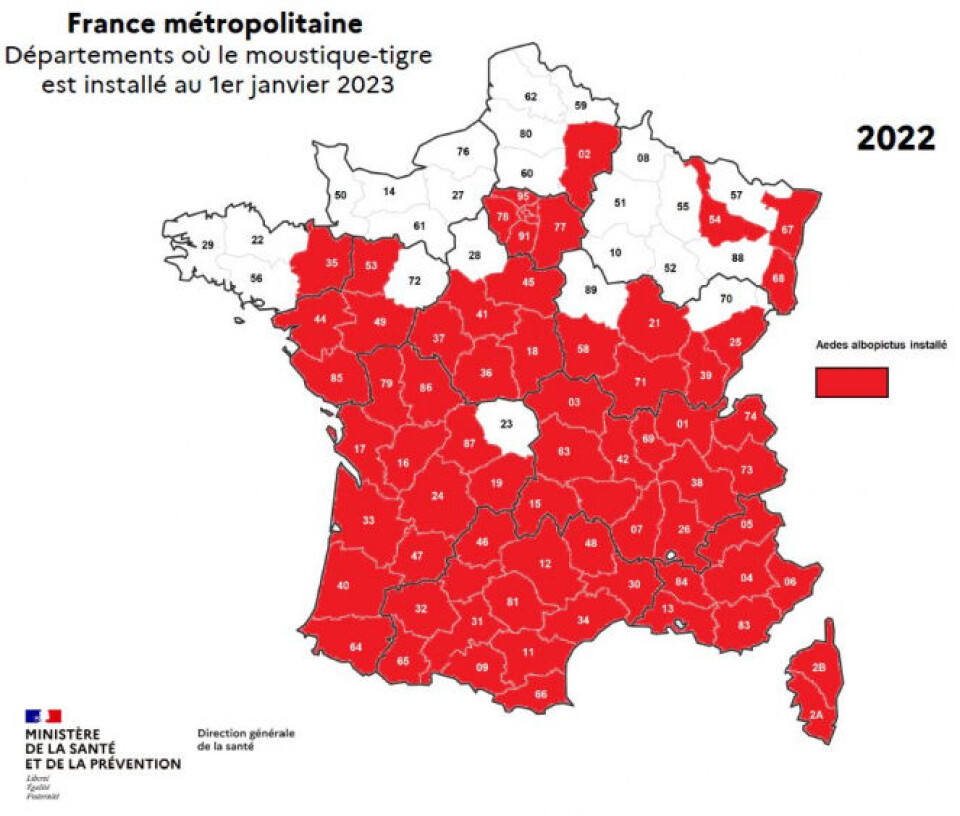-
Tough Airbnb rules in Marseille prompt many property owners to sell
City council reduce time that a property can be rented to short-term guests
-
Why the price of chocolate is skyrocketing in France this Easter
Certain products have seen prices increase by 34% as cheaper store brands are hit harder than global ones
-
What is known about large fire at recycling centre in Paris
Residents nearby are being urged to remain cautious over inhaling smoke
1,347 cases of dengue fever registered in France since May 1
Most came from overseas but the number of native cases is rising sharply too, the French health authority has warned

More than 1,300 cases of dengue fever have been reported in mainland France since May this year, figures show, as their vector - tiger mosquitoes - continue to spread due to climate change.
Most cases were in people who had returned from travelling to at-risk areas, such as Southeast Asia or the Caribbean, including the French overseas territories.
However, 36 cases were reported as ‘native’ during the surveillance period. This (termed ‘autochtone’ in French) means that they were found in people who had not travelled to an at-risk area, and had become infected by a tiger mosquito bite in France.
Native case areas
The native cases were identified in Provence-Alpes-Côte d’Azur, Occitanie, Auvergne Rhône-Alpes, and Île-de-France.
They were identified during the surveillance period of May 1 and October 20, said French health authority Santé Publique France (SPF) on October 24.
In the Provence-Alpes-Côte d'Azur region:
-
Four cases detected in Gardanne (Bouches-du-Rhône)
-
One case “that may have originated in Nice in the Alpes-Maritimes department or in Le Castellet or La Garde in the Var department”, said SPF
-
Nine cases in Boulbon (Bouches-du-Rhône)
In the Occitanie region:
-
11 cases identified in an area around Perpignan (Pyrénées-Orientales)
-
Eight cases in Gagnières (Gard)
In the Auvergne-Rhône-Alpes:
-
Two cases identified in Bourg-les-Valence (Drôme)
In the Île-de-France region:
-
One case identified in the commune of Limeil-Brévannes (Val-de-Marne)
Mosquitoes on the move
Most cases of dengue are seen in the southern regions of France, as the tiger mosquito is more common there (and spreads more easily in warmer environments).
In 2022, there were 66 native cases of dengue identified in France, mainly in Provence-Alpes-Côte-d'Azur and in Occitanie. SPF has termed this ‘exceptional’, as it was more than the total number of cases - 48 - seen between 2010-2021 combined.
However, the case in Ile-de-France this year was the first identified in that more northern region, and shows that the mosquitoes - and therefore the virus - may be spreading further north.
Read more: First case of native dengue fever from tiger mosquito in Paris area
The insect has spread rapidly since it was first reported in France in 2004.

How to avoid tiger mosquitoes and dengue
Despite their ‘big cat’ name, tiger mosquitoes are just as tiny as ‘regular’ mosquitoes. However, they are silent, and are active during the day.
The Aedes albopictus (tiger mosquito) develops mainly in urban areas. They lay their eggs in stagnant water, such as in vases, saucers, used tyres, blocked gutters, or poorly-stored waste.
While they can also lay eggs in natural tree hollows and certain plants (such as bamboo), breeding sites created by humans are the most common, said SPF.
Emptying your home and garden of any stagnant water is the best method to keep them away - but you can also deter them with typical anti-mosquito products such as sprays, creams, candles, electric diffusers, and clothes with long sleeves and trousers.
Dengue can cause a high fever, a headache, joint pain and digestive problems. It can also cause rashes, and in very rare severe cases, can cause haemorrhage. It is typically not fatal; only 0.01% of patients die.
If you suspect you may have dengue - either after returning from a trip to an at-risk area, or after receiving a mosquito bite - you are advised to contact medical assistance immediately.
All cases of dengue in France must be reported and investigated.
Related articles
First case of native dengue fever from tiger mosquito in Paris area
Alarm over massive rise of mosquito-spread diseases caught in France
Tiger mosquitoes: How you can help stop their spread in France
























